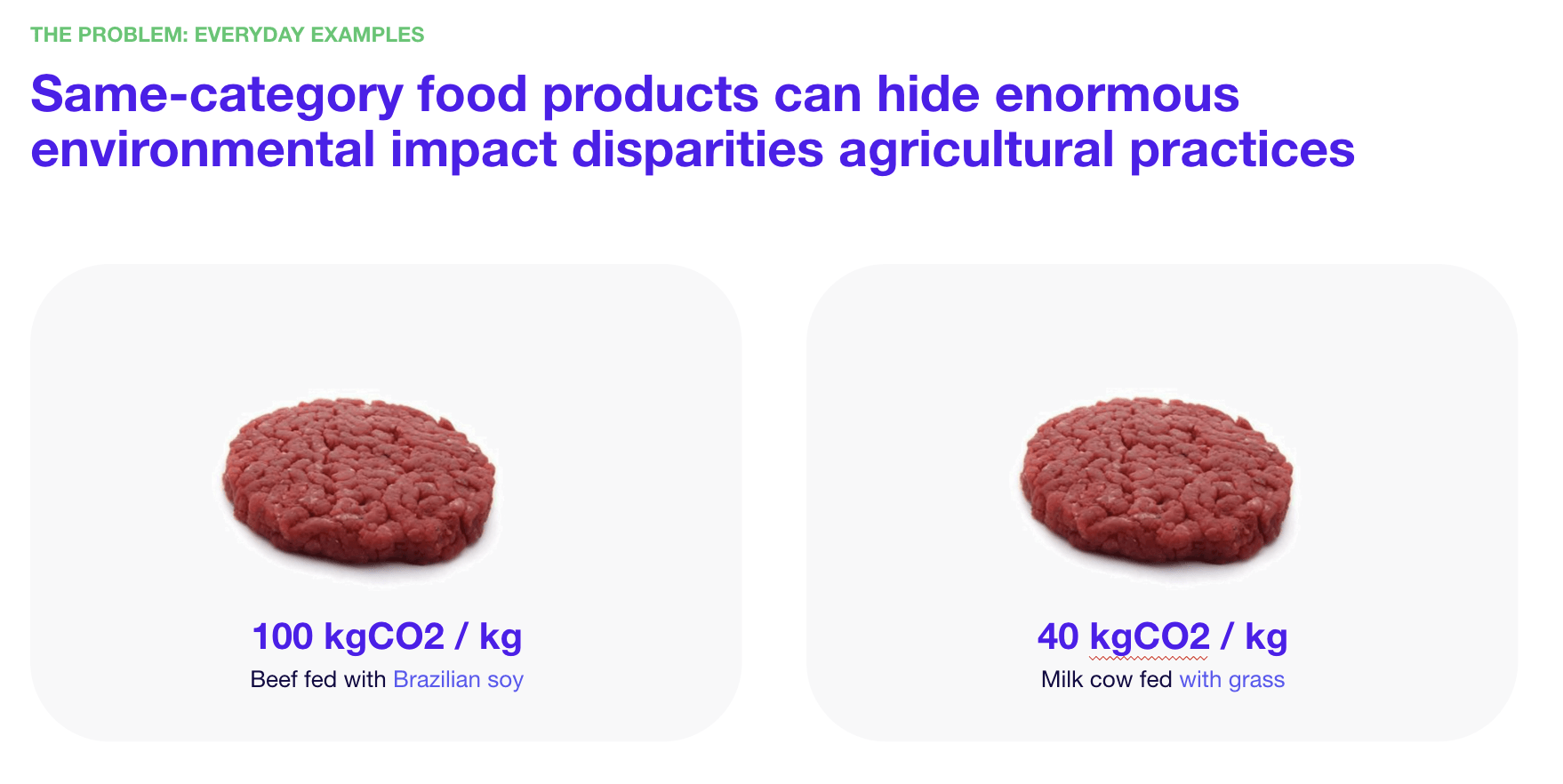While a number of carbon footprint mapping tools focus on general industry, Carbon Maps is zeroing in on what we eat. Specifically, the Paris-based startup is using mathematical models coupled with a healthy dose of AI to offer what the company is calling high-precision assessments of consumer products, ingredients, and raw materials.
Backed in this round by Breega and Samaipata, Carbon Maps collects and analyses data across the entire food chain, from farm to mouth, and calculates a number of impact indicators, including, naturally, the carbon footprint, but goes a few steps further to include biodiversity impact, water use, and animal welfare, ultimately providing producers, co-ops, brands, and distributors with a set of tools to accurately evaluate and monitor their respective climate strategies.

Former founder of on-demand fresh meal service FoodChéri/Seazon (acquired by Sodexo in 2021) and now co-founder and CEO at Carbon Maps Patrick Asdaghi commented, “Our ambition is to become the leading environmental accounting platform bringing together all players in the food value chain, empowering them to assess their products’ climate impact so they can reduce it sustainably.”
With auditable calculations that are based on standards and models validated by the scientific community (GHG Protocol, ISO 14040 & 14044, IPCC), Carbon Maps is helping companies, particularly French companies, get a jump on the Eco-Score, an upcoming environmental consumer product label detailed in France’s Climate & Resilience Law expected to come into effect by the end of 2023.
“Our food system is a major contributing factor to global greenhouse gas emissions, biodiversity destruction, deforestation and water consumption worldwide,” Asdaghi added. “The environmental urgency has never been higher in consumers’ minds. Food brands are under increasing pressure from civil society and regulators to take responsibility. Carbon Maps offers concrete tools and solutions that enable brands to develop actionable insights on a SKU (stock-keeping unit) basis, and build credible, effective climate plans relevant to their supply chains and their regions.”
In addition to further fleshing on the platform, Carbon Maps reports that the €4 million will support the addition of approximately 15 new talents as well as plans to expand further across EU countries.



Would you like to write the first comment?
Login to post comments